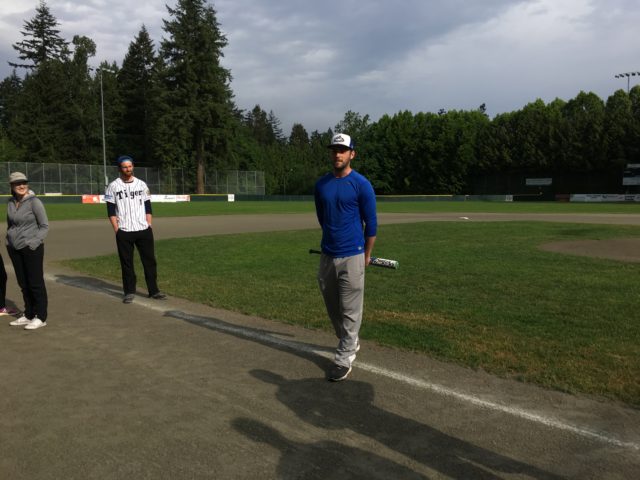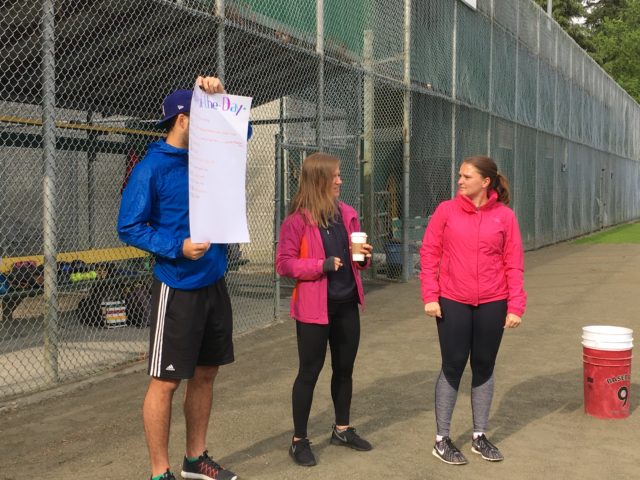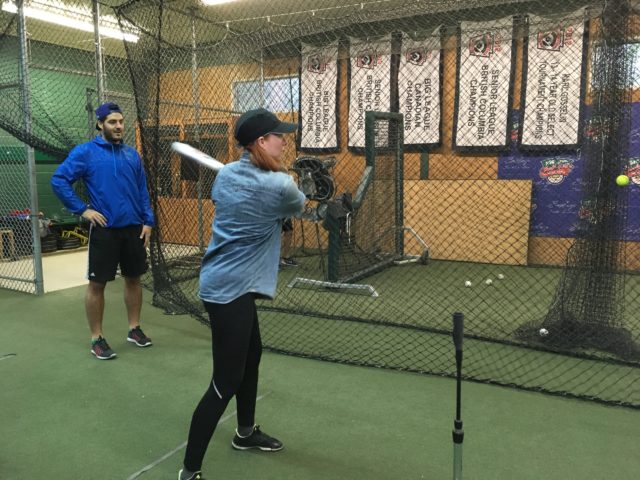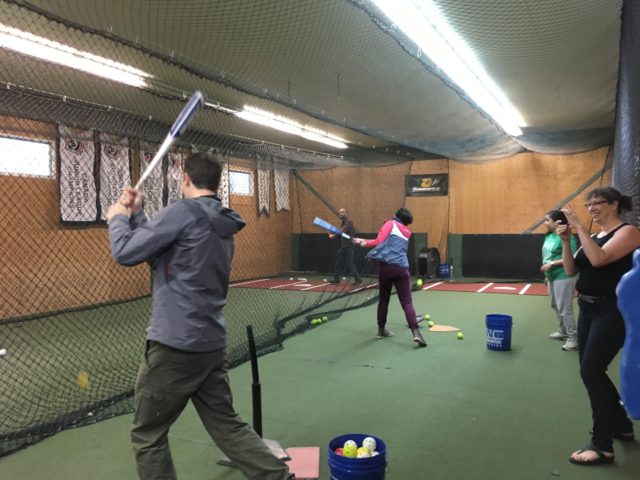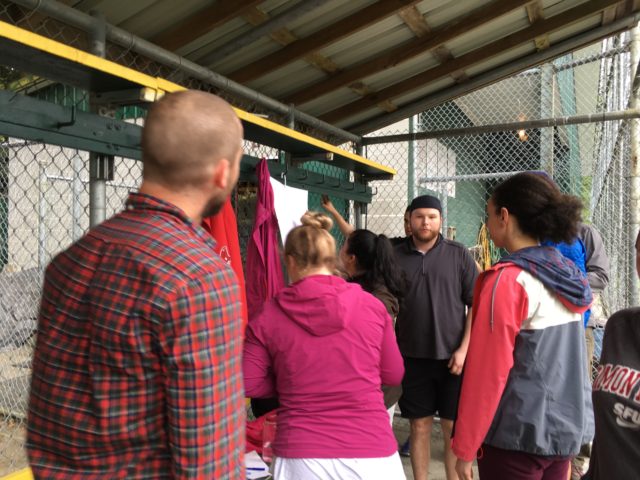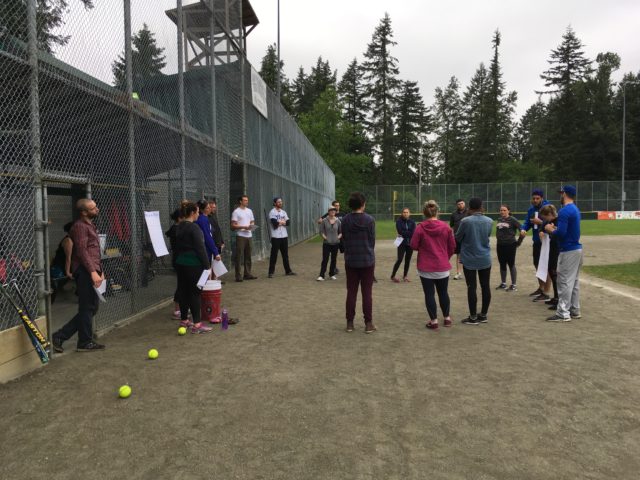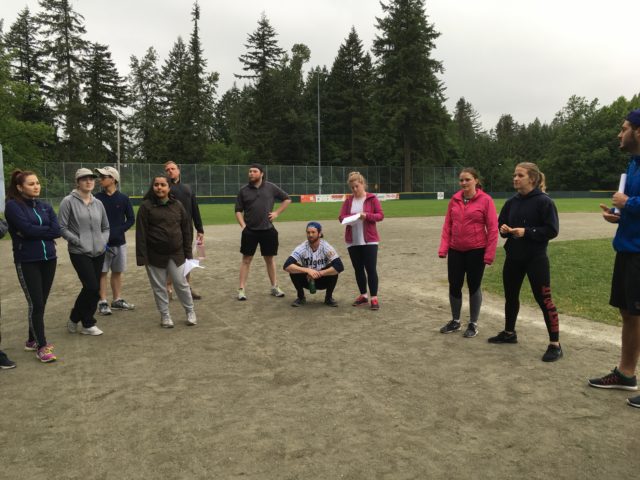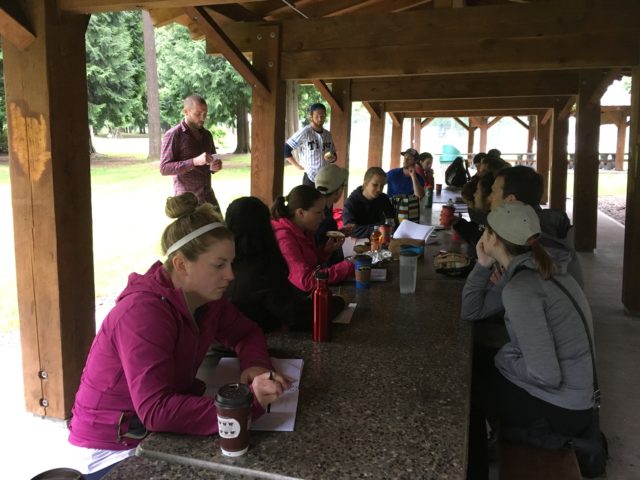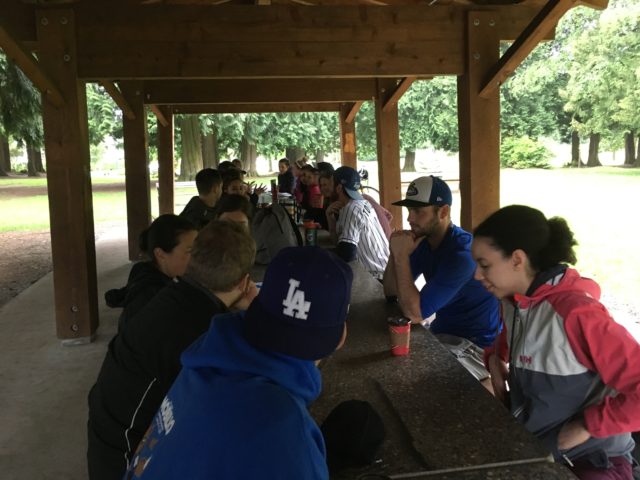Building Math Confidence
Week 4 – EDUC454 D100 – May 30, 2017
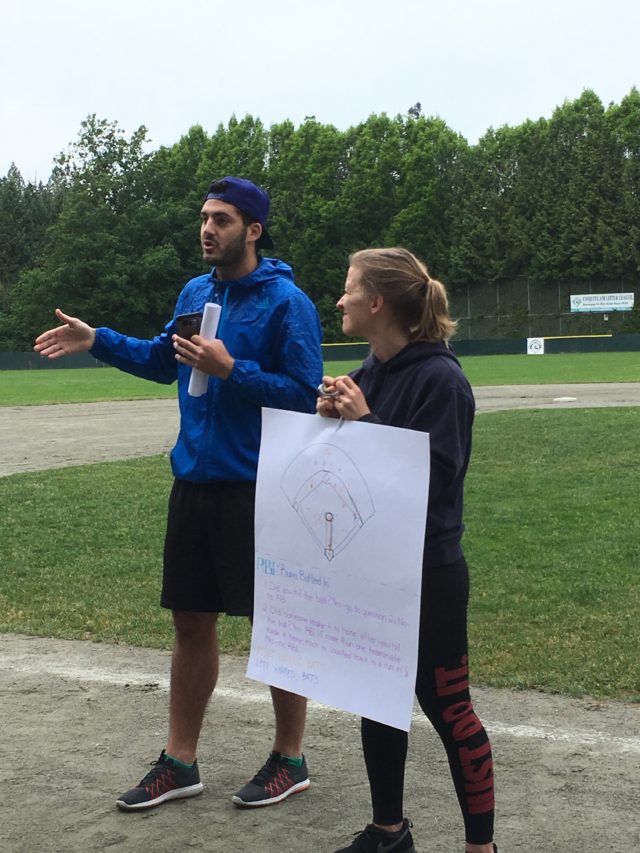 Today’s journal reflection question is: “How can teachers give students the confidence to improve their self-concept in mathematics?” This was one of the questions from last week’s reading on math efficacy and math self-concept. I wanted to return back to this question because my students make me wonder about their math efficacy and self-concept and how that translates into their teaching practice, thus support student learning. I was thinking about last week and how we ended our class with a weaving activity, where math was embedded in the activity. Some students loved the activity while other students not so much. One student said, “Just give me an equation to solve, a chemical equation to balance… I can’t do this.” Ok… maybe not those exact words, but close enough. Our math self-concept is so deeply embedded in our core beliefs. How do we change that in ourselves as teachers so that we can help students to continue to thrive in their mathematics thinking or help students to transform their thinking into I CAN.
Today’s journal reflection question is: “How can teachers give students the confidence to improve their self-concept in mathematics?” This was one of the questions from last week’s reading on math efficacy and math self-concept. I wanted to return back to this question because my students make me wonder about their math efficacy and self-concept and how that translates into their teaching practice, thus support student learning. I was thinking about last week and how we ended our class with a weaving activity, where math was embedded in the activity. Some students loved the activity while other students not so much. One student said, “Just give me an equation to solve, a chemical equation to balance… I can’t do this.” Ok… maybe not those exact words, but close enough. Our math self-concept is so deeply embedded in our core beliefs. How do we change that in ourselves as teachers so that we can help students to continue to thrive in their mathematics thinking or help students to transform their thinking into I CAN.
As a mathematics educator, I am always trying to get students to understand their strengths and to look at their learning as an opportunity, not as a deficit or weakness. I like to focus on strengths and how we can use our strengths to leverage our learning to bridge gaps where they may exist. It reminds me of Chris Wejr’s TEDxLangleyED talk, “Bring out the best in people: Start with strengths.” With my EDUC454 class, they leave me thinking. I am curious about how they are able to excel in mathematics in the context of their curricular area, but when they “have to do math” as math, their math self-concept is not the same as when they are teaching their passion.
Today, I was reminded how teaching your passion can woo students into learning and understand that math is EVERYWHERE. Use your strength to build confidence. Today was our first group facilitation session. This is where the students become the teacher. Groups of 4 to 5 are tasked with facilitating a learning activity with the class that includes the environment, mathematics, and their curricular area. The “Knights of the Night” used baseball to teach about the land, respect, team work, data collection, statistics, geography, physics, and the core competencies. I was so inspired by the day and have lots of take aways for Math 8 and 9. My big take away from today’s learning activity was to use your strength (i.e. baseball) to woo the student into mathematics (i.e. data collection, data analysis), embedding the core competencies (i.e. critical thinking and communication) to make learning relevant.
I’m not sure if my students realize it or not, but they are absolutely competent in mathematics in the context of their content area. And because of this, they can definitely teach mathematics that is engaging, relevant, and interdisciplinary. I was impressed with what these student teachers composed and what they had learned from each other to co-facilitate this morning’s learning activity. It was super fun and I can definitely see how this 2-hour activity with us could easily transform into a unit plan or an ongoing learning opportunity where different curricular competencies, big ideas, and content can be accomplished with secondary students. This is how we can give students the confidence to improve their self-concept in mathematics… connect it to student prior knowledge, and their strengths and interests. I gasped several times this morning (i.e. mind-blown) about the amount of statistics baseball collects, such that I was curious about how much data the MLB collects. Check this out… http://m.mlb.com/glossary/standard-stats. It’s the GLOSSARY OF STATS.
